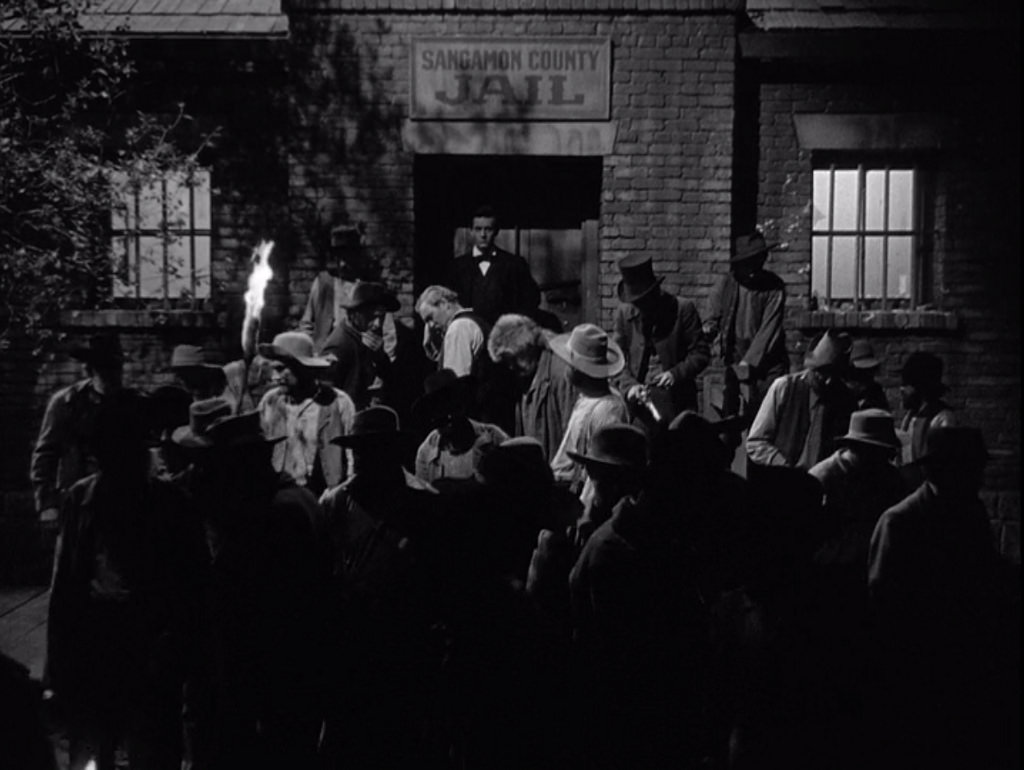On the night of September 28, 1919, in downtown Omaha, Nebraska, a black man named Will Brown was lynched: He was stripped, beaten, and hanged from a lamppost; his body was burned on a bonfire and dragged behind a car through the streets; the lynching rope was cut up and the pieces were sold as souvenirs. A 14-year-old boy named Henry Fonda witnessed the lynching, and only spoke about it near the end of his life. But the seared-in memory still burned. From a 1975 interview with Norman Parkinson:
After supper, [my dad] put me in the car with him and we drove back downtown [to the printing office]. And it was very unusual for me — for my dad to be taking me at my age and turning lights on and unlocking doors and going up the stairs. It’s not like doing it in the daytime. I remember those physical things, and walking across this empty office to a window that overlooked the courthouse square. This was where the riot was happening. My father never talked about it. He never preached about it. We both just were observers. […] It was the most horrendous sight I’d ever seen. […] My hands were wet and there were tears in my eyes. All I could think of was that young black man dangling at the end of a rope.
Henry Fonda left Omaha and became a movie star, but Will Brown never left Fonda. In 1939, Fonda played Abraham Lincoln in John Ford’s “Young Mr. Lincoln,” which was released on Blu-ray this month by the Criterion Collection. The movie features an attempted lynching eerily similar to the lynching Fonda witnessed: A mob tries to break into the jail, so they can lynch two young men. Lincoln blocks the jail’s doorway with his body and threatens the mob: “I’m not here to make any speeches. All I got to say is I can lick any man here, hands down.”
There’s real rage in Lincoln’s voice; is Fonda imagining himself standing between Will Brown and the mob that murdered him? But Lincoln’s threat doesn’t disperse the mob, so he turns to comedy: “I’m just a fresh lawyer tryin’ to get ahead. […] Maybe these boys do deserve to hang. But with me handling their case, don’t look like you’ll have much to worry about on that score.” Lincoln wins over the mob, and then he makes his speech: “Trouble is, when men start taking the law into their own hands, they’re just as apt […] to start hangin’ somebody who’s not a murderer. We do things together that we’d be mighty ashamed to do by ourselves.” The mob disperses. Lincoln has saved the young men. Fonda has saved Will Brown.
Henry Fonda tried to save Will Brown again in 1943. “The Ox-Bow Incident” is a scathing indictment of vigilante justice; the movie rejects the masculinity Westerns would embrace; it condemns violence. A mob accuses some men of murdering a rancher and wants to lynch them. There isn’t a doorway for Fonda to block this time. He can only watch. (“We both just were observers.”) At the end of the movie, Fonda delivers an emotional monologue: “Man just naturally can’t take the law into his own hands and hang people without hurting everybody in the world.”
In 1954, Henry Fonda saw Reginald Rose’s teleplay “Twelve Angry Men” and decided to produce a movie adaptation. “12 Angry Men” was the first and last movie he produced. He gave himself the role of Juror 8: the voice of reason; the barrier between the angry men and the accused. Juror 8 keeps his cool in a hot room, but there’s anger in Fonda’s eyes: “12 Angry Men” is the trial Will Brown never got.
Henry Fonda was a lifelong Democrat, but his obsession with due process and his rejection of vigilantism went beyond politics. He chose characters who stood between the innocent and the mob. He chose roles that brought him back to the night of September 28, 1919. Why? Why go back to “the most horrendous sight” he’d ever seen? Maybe the answer is in the memory: “It’s not like doing it in the daytime.” Men do things at night that they’d be mighty ashamed to do during the day. Henry Fonda wanted to turn on the light.
If you’d like to learn more about Henry Fonda, I recommend The Man Who Saw A Ghost by Devin McKinney. If you’d like to learn more about the Omaha riots and the “Red Summer,” this Washington Post article is a good place to start.











